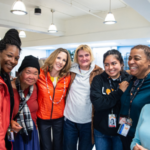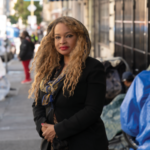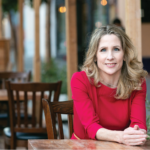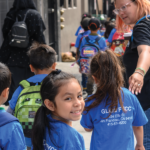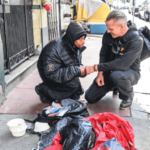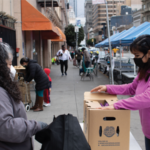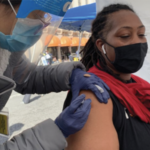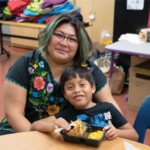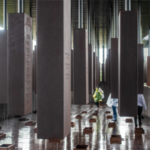Zero Waste: Addressing Food Insecurity and Sustainability Together
Zero Waste: Addressing Food Insecurity and Sustainability Together
The city of San Francisco generates about half a million tons of material in landfill each year, a number that has grown significantly over the course of the COVID-19 pandemic. At GLIDE, the waste didn’t go unnoticed. Members of GLIDE’s staff observed how much plastic was being used to supply food to the community. “Everything was wrapped in plastic, including vegetables,” says Joselyn Barrera, Daily Meals Program Manager. “We wanted to take a different approach.” That’s why, in the summer of 2021, GLIDE introduced a Zero Waste Food Pantry, providing nourishing food in reusable and compostable containers.
The sustainability-minded initiative comes at a time when 93% of GLIDE’s client families reported income loss during the pandemic. Since its inception, the zero-waste pantry has grown to serve an average of 40 families each week. For families like Nelida’s, the pantry offers support in more ways than one: “I get food from GLIDE weekly,” says Nelida, “and it feels nice to be able to come here, be able to receive something, and just be part of a community.”
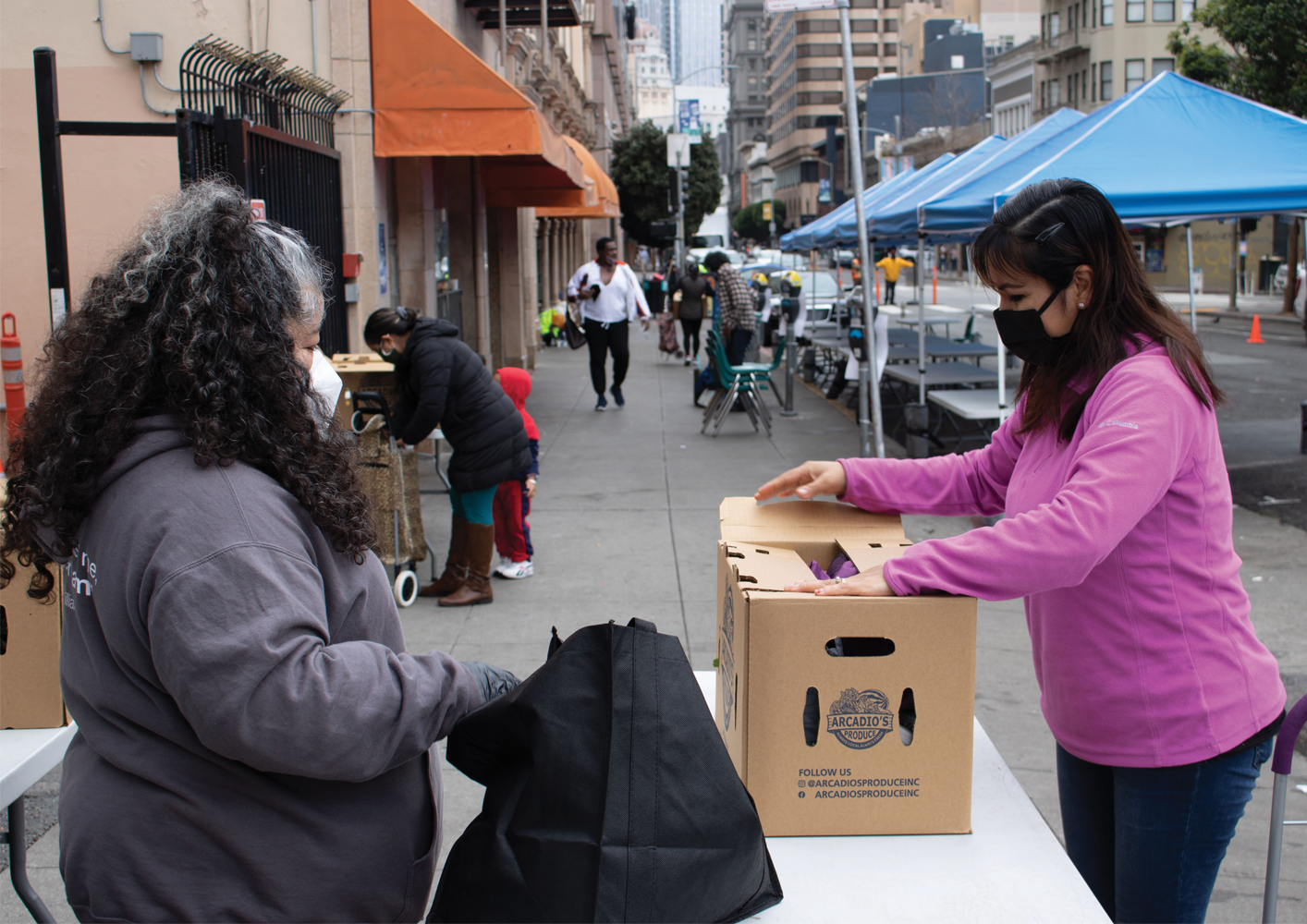
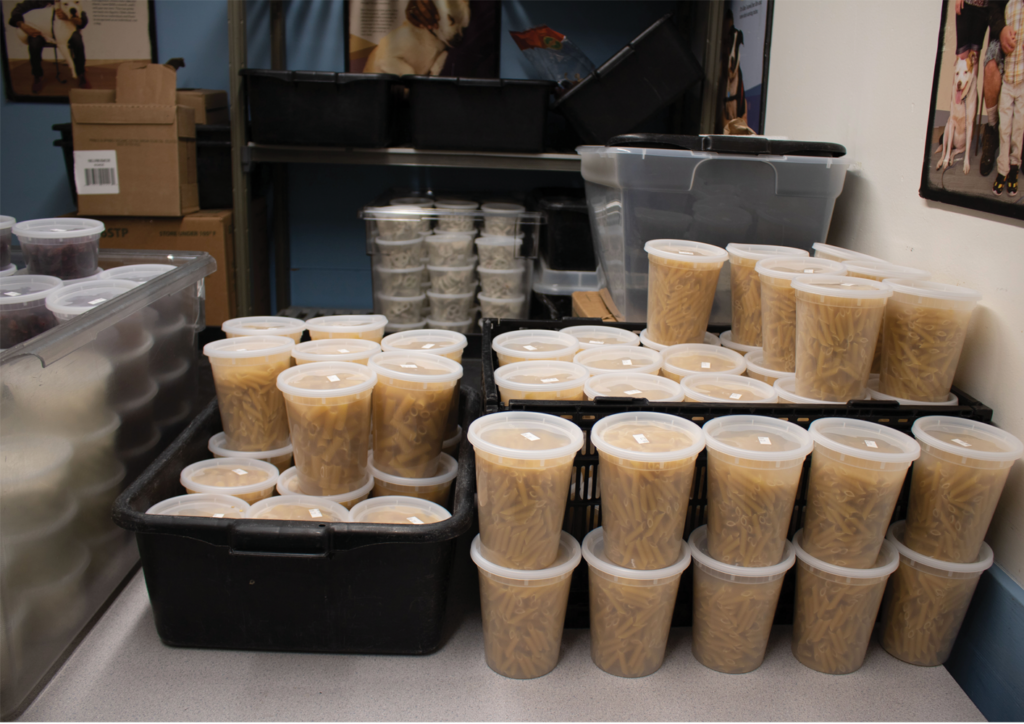
Each week, families receive menus featuring a list of nutritious food items they can select. The pantry team then packs the food items into reusable containers and distributes them to families, while collecting containers from the previous week to be used once again. Food items are mindfully sourced through local Bay Area vendors that reflect the food cultures of participating families.
GLIDE’s sustainability efforts started three years ago when the organization became a certified green business and started sorting waste every day of the week. These initial actions were implemented to better align with San Francisco’s Mandatory Recycling and Composting Ordinance, which requires everyone in the city to keep recyclables and trash separated. Through waste sorting, GLIDE staff quickly began to see environmental and financial benefits of taking an environmentally sustainable approach to serving families.
“I get food from GLIDE weekly,” says Nelida, “and it feels nice to be able to come here, be able to receive something, and just be part of a community.”
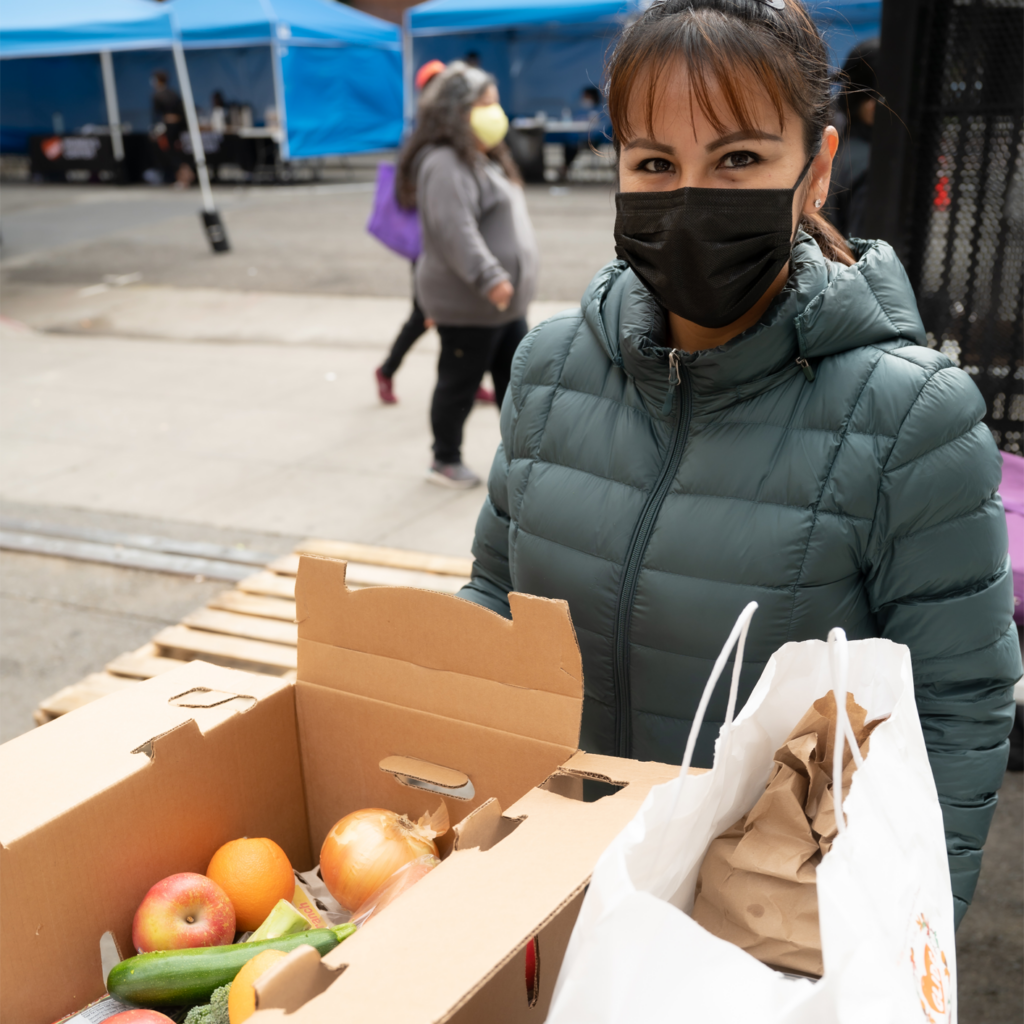
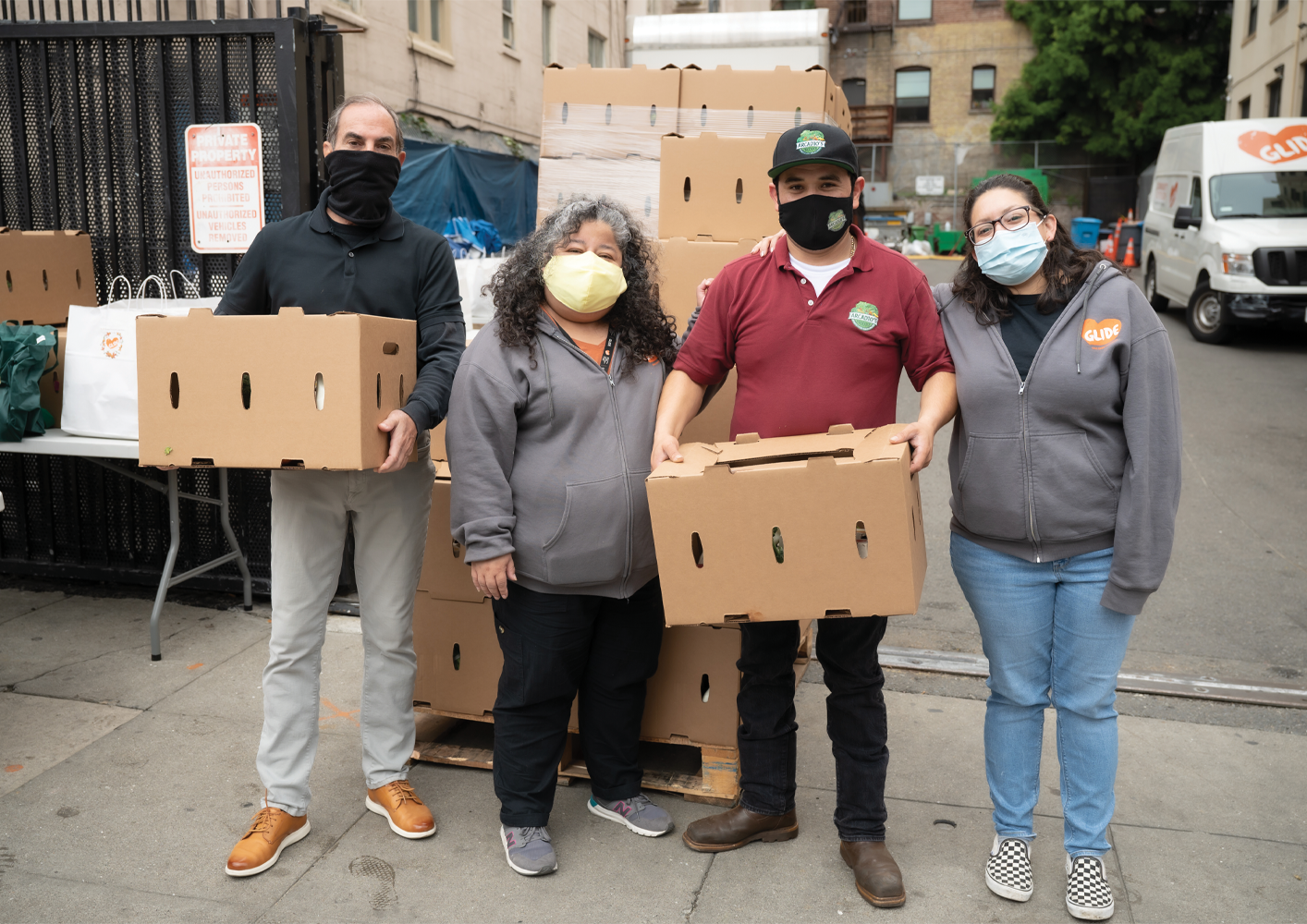
Communities that are affected by racial injustice are the same communities that are most impacted by environmental injustice. Integrating sustainable practices within GLIDE not only lightens our footprint, it provides an important avenue for opening a conversation around sustainable practices within the communities that GLIDE serves. “In our community, it’s not something that we really talk about as minorities and people of color. We just don’t talk about sustainability as much as we should,” says Joselyn. “This pantry is critical because we’re educating children and parents. I think that this is a perfect example of how you can impact both generations and I think it’s a great approach.”

